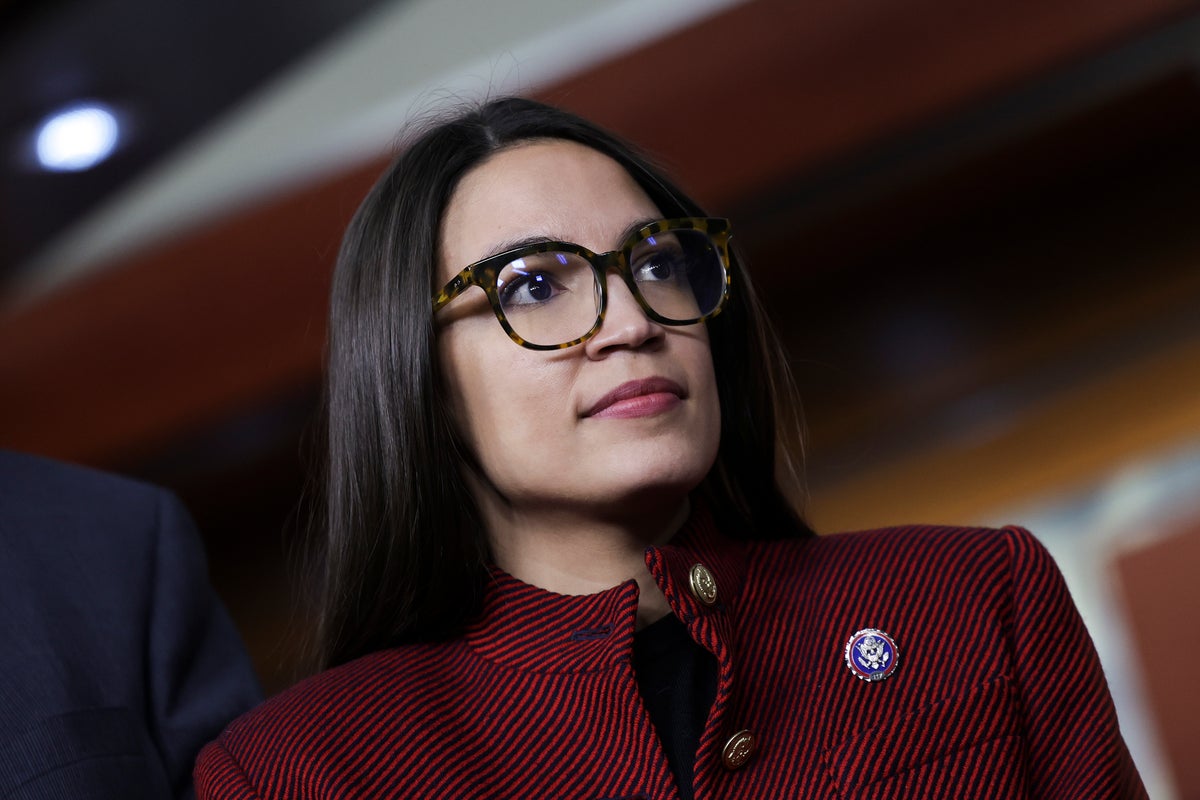
Alexandria Ocasio-Cortez has revealed her pessimism about running for president, saying that “I live in a country that would never let that happen”.
Speaking to GQ, Ms Ocasio-Cortez said “sometimes little girls will say, ‘Oh, I want you to be president,’ or things like that”.
“It’s very difficult for me to talk about because it provokes a lot of inner conflict in that I never want to tell a little girl what she can’t do. And I don’t want to tell young people what is not possible. I’ve never been in the business of doing that,” she added.
According to the magazine, “her speech slowed to a crawl ... she broke eye contact” and “tears pooled in the corners of her eyes”.
The progressive New York congresswoman said she believes “two contradictory things at the same time. One is just the relentless belief that anything is possible”.
“But at the same time, my experience here has given me a front-row seat to how deeply and unconsciously, as well as consciously, so many people in this country hate women. And they hate women of colour,” she added. “People ask me questions about the future. And realistically, I can’t even tell you if I’m going to be alive in September. And that weighs very heavily on me.”
“And it’s not just the right wing. Misogyny transcends political ideology: left, right, centre. This grip of patriarchy affects all of us, not just women; men, as I mentioned before, but also, ideologically, there’s an extraordinary lack of self-awareness in so many places,” Ms Ocasio-Cortez told GQ. “And so those are two very conflicting things. I admit to sometimes believing that I live in a country that would never let that happen.”
“Could Obama have gotten elected without the kind of financial support that he had?” she asked.
Since arriving in Washington DC following her upset victory in a 2018 midterm primary against then-Democratic Caucus Chair Joe Crawley, Ms Ocasio Cortez said she has “experienced a lot of targeting diminishment from my party. And the pervasiveness of that diminishment, it was all-encompassing at times. I feel a little more steady on my own two feet now. But would I say that I have the power to shift the elected federal Democratic Party? No”.
“It was open hostility, open hostility to my presence, my existence,” she said about her arrival in Congress.
“Any sort of criticism of the Democratic Party is immediately cast as helping the right or ‘You’re disrespectful’ or ‘Don’t you know everything that these people have done?’ And we do, but we are also allowed to learn from the outcomes of those victories and the unique dynamics of the present moment, to also say that we have to change tack and we can’t just do the same thing for 30 years,” Ms Ocasio-Cortez told GQ.
“I have always felt that the true power, and true power in the United States, relies in mass movements and social movements,” she added. “And there are many people who will not do something until they are forced, until their hand is absolutely and utterly forced, whether that be for decisions of self-preservation or otherwise. And so there have been moments where I feel like I have been part of influencing an outcome or a decision by the party.”
“I feel like everybody treated me like a one-term member of Congress, and they worked to make me a one-term member of Congress,” she said. “There was a very concerted effort from the Democratic side to unseat me. And I felt a shift after my primary election, and it felt like after that election was the first time that more broadly the party started treating me like a member of Congress and not an accident.”







